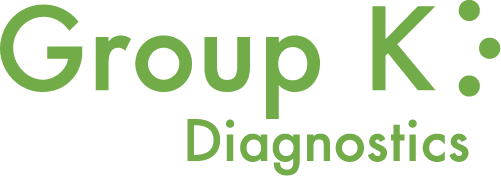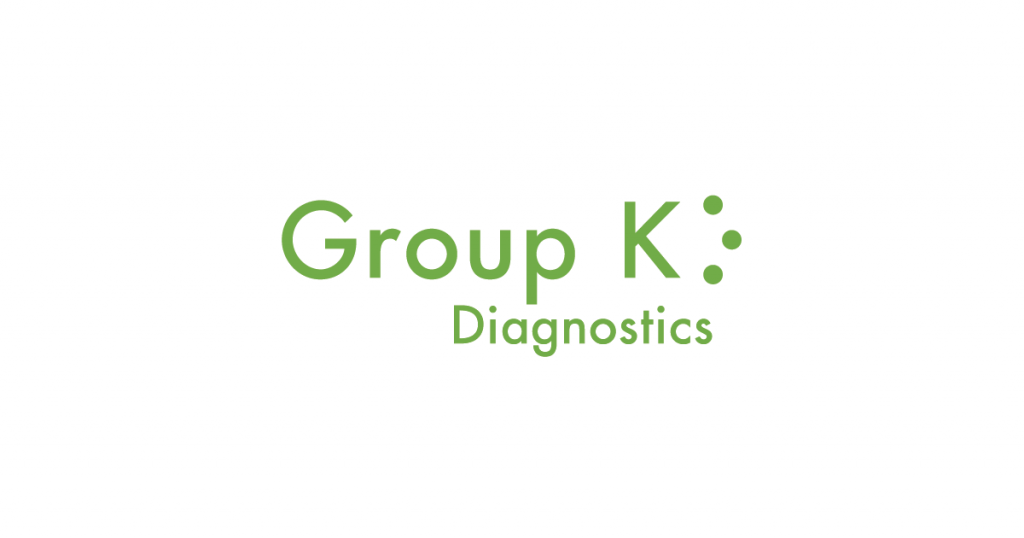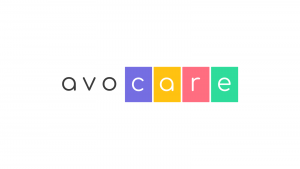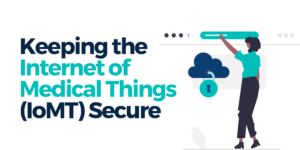Diagnostic procedures such as blood tests and imaging are an important part of medical care. However, the processes involved in outpatient diagnostics are costly and slow. To solve this, Group K Diagnostics created the MultiDiagnostic, a paper-based diagnostic tool administered at the point of care.
Instead of travelling to different labs and waiting for test results to come in, patients and healthcare providers can use MultiDiagnostic to conduct diagnostic tests with results ready to go within minutes. Providers simply collect the sample, touch the sample to MultiDiagnostic’s surface, and use the accompanying app to interpret the results. Currently, MultiDiagnostic is in trial for diagnostic liver function tests, with 60 more tests in development.
We spoke with Brianna Wronko, CEO and Co-Founder of Group K Diagnostics, to learn more.

Why did you start Group K Diagnostics?
Group K Diagnostics was born during an experience I had at an HIV clinic. I had noticed that patients were constantly being lost to follow up because the time to receive results from diagnostics tests is too long. HIV patients have a higher chance of liver or kidney toxicity from the antiretroviral drug regimen and if something is failing, clinics are oftentimes unable to contact patients to change their pharmaceutical regimen. Long follow up times can lead to increased hospitalization, permanently lowered organ function, or an increase in multi-drug resistance.
I was struck when a pregnant patient had her liver function and viral load tests run, but were unable to adjust any medication before she left the clinic. Though the patient required more care, she was unreachable until she resurfaced 6 months later, leading to higher complication and transmission rates for her and her child.
Immediately, I realized that a quick and cheap testing solution at point of care can solve this issue along with many others. Group K Diagnostics was founded in October 2016 and development of the MultiDiagnostic began soon after.
What is Group K Diagnostics?
At Group K, we seek to radically improve patient care while easing provider burden. We produce an innovative, low-cost, 20 minute point of care solution. Keeping in mind the needs of patients and providers, we have also made our model reimbursable and easily integratable with current office workflow.
What is MultiDiagnostic? What does it do?
Our product is a paper microfluidic platform with an accompanying app. The platform is a system of up to 10 cards, each containing three test areas. These areas have dried proprietary reagents that produce a color change when blood is added. The app is then used to interpret the change and output results to the EMR.
What are you trying to solve? Why is it such a big problem?
Outpatient diagnostics are slow and expensive due to long turnaround times, difficult workflows, and high costs. Turnaround time can be up to 10 days as patients travel to a separate facility for labs and often never complete them. Given that 77% of all clinical decisions are based on laboratory testing, and 35% of patients are not contacted with abnormal results, diagnostics are not working efficiently for outpatient providers. Beyond time and workflow difficulties, tests can cost anywhere from $15-100 per test depending on insurance, plan coverage, and provider. Group K solves this with a point of care device.
What are you trying to achieve with MultiDiagnostic?
At Group K, we seek to improve patient care while easing provider burden. We produce an innovative, low-cost, 20 minute, modular, point of care diagnostic. Our innovation consists of a disposable hardware component and a software app that reads the device.
What impact has MultiDiagnostic made?
We hope to see increased patient compliance with completing blood work, as well as improved patient outcomes as all patients get the care that they need, and results as soon as possible.
We also hope to see more patients receive the care they need–whether they are in a remote area, or can’t financially access care.
What are some major milestones and success?
Some of our major milestones include completing our first Liver Function Test trials in April 2017, raising $200,000 in September 2017, and winner the Best of the Best pitch in New York City from 1st Pitch/MABA. For more about our journey so far, take a look at our December newsletter.
Where are you headed next? Where and how do you see your company growing?
Our platform with 6 liver function tests is going to clinical trial at PennMedicine in the next month, and approximately 60 tests, including those for infectious diseases, cardiac function, and basic chemistries are in various stages of development.
What problems did you face along the way?
Finding lab space was difficult; there are only a few BSL-II labs available in the Philadelphia region. A BSL-II lab is necessary for any diagnostics company to be able to fully test their products using human blood. We were able to work with the Science Center in Philadelphia to secure space in a private BSL-II lab with their generous subsidy program.
As the concept of the app developed from simple Matlab software to a complex smartphone app, we realized we would need to be fully HIPAA compliant. MedStack helped us overcome the issue of getting HIPAA compliant servers.
We are celebrating our customers at MedStack. They are people and companies who are taking incredible steps to improving healthcare and care delivery for patients, their caregivers and healthcare providers. Customer Stories, is dedicated to highlighting their journey, product, and success.





